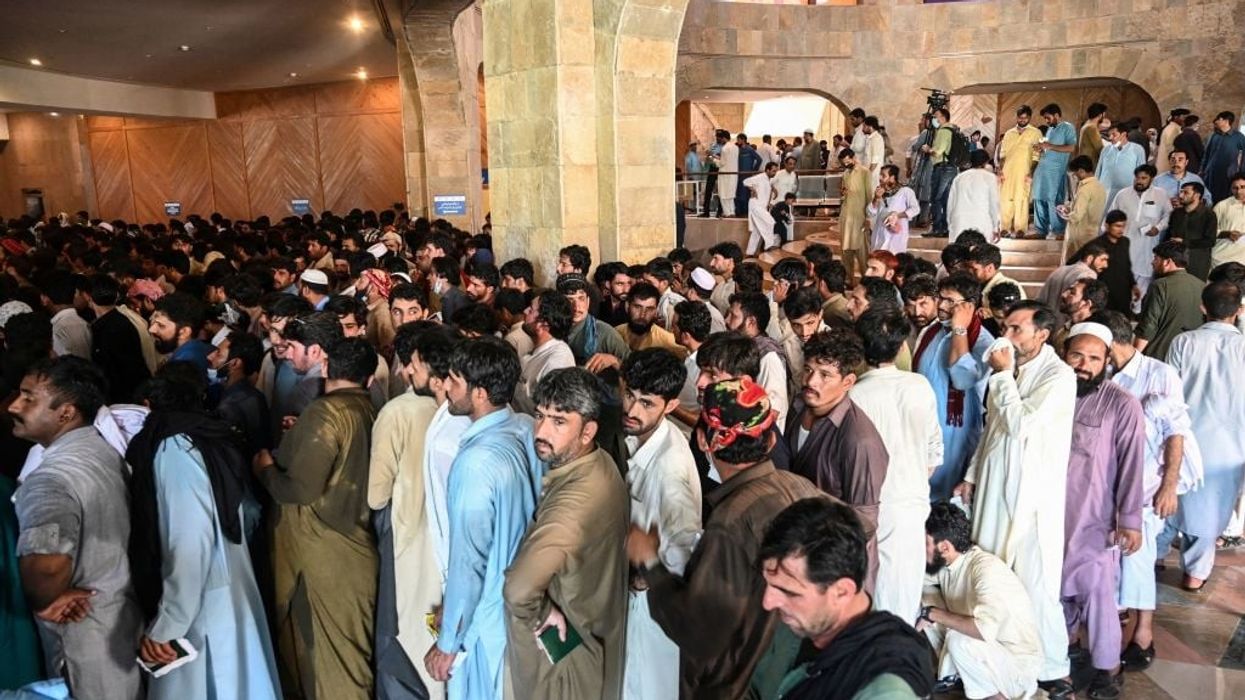HUNDREDS of desperate Pakistanis overwhelmed a government-run coronavirus vaccination centre in the capital of Islamabad on Monday (28) as the nation grappled with a shortage of life-saving shots.
Most of those clamouring to be vaccinated were Pakistanis who work overseas - mainly in the Gulf Arab nations such as Saudi Arabia - who need a shot of the hard-to-find AstraZeneca, Pfizer, Moderna or Johnson and Johnson vaccine to travel there.
"We have a very limited capacity here, but for the past few days the centre has been overwhelmed by those wanting to travel abroad," senior police official Farooq Amjad Buttar said.
Pakistan has so far fully or partially vaccinated nearly 12 million people from a population of 220 million, mostly with the Chinese Sinopharm or Sinovac jabs.
Most Gulf nations, however, require incoming foreign workers to be vaccinated with AstraZeneca or Pfizer brands, which are in short supply in Pakistan.
Millions of Pakistanis work abroad and their remittances are a key part of Pakistan's economy and its foreign currency reserves.
On Monday (28), a crowd of hundreds overwhelmed staff at a vaccination centre, smashing glass doors as they pressed to get in.
"It was not a protest or an attack," Buttar said, downplaying the incident in which no one was injured.
Muhammad Shehzad, travelled from the north-western city of Mardan to Islamabad in the hope of getting an AstraZeneca shot.
"Saudi officials say they will let us enter only after getting vaccinated," he said.
"I got a Chinese vaccine, but they are saying they will accept American vaccines only," Shehzad added.
Earlier this month Pakistan received 1.2 million doses of AstraZeneca under the Covax facility.
So far, the south Asian nation has dodged the worst of Covid-19, but officials have warned a fourth wave could hit the country next month.
Deaths and new infections have, however, come down, and social gathering restrictions have recently been eased, business hours extended and some schools reopened.




